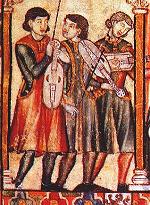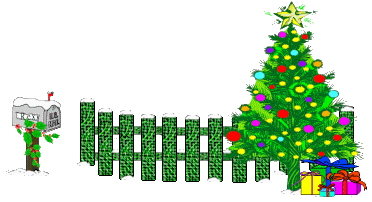| CHRISTMAS CAROLS 
The word "carol" is derived from the old French word caroller, which means dancing around in a circle. It was derived from the Latin choraula, which in turn was derived from the Greek choraules. The early Christmas music compositions are regarded as chants and hymns. The original carols referred to a circle dance which did not have any singing - that came later. As the church struggled against the influences of pagan customs, the singing of carols was barred from sacred services. However, outside the church, Nativity carols were written and became popular. Nearly all were simple folk songs created by people from the countryside. Saint Francis of Assisi is credited with bringing carols into the formal worship of the church during a Christmas Midnight Mass in a cave in Greccio, in the province of Umbria in 1223. It's said that the music sung that night was more akin to what we know as carols than to hymns. Carols enjoyed further development and popularity when they were used in the mystery plays of the Middle Ages. Wandering minstrels traveled from hamlet to castle, performing carols in the distant past. In later years, villages had their own bands of waits. Waits were originally watchmen who patrolled the streets and byways of the old walled cities keeping guard against fire and singing out the hours of the night. During the holiday season, they would include some carols for the people along the way, although some folks complained that they would rather get a good nights sleep than have somebody singing under their window. Eventually the term was used to describe groups of musicians who sang and played for various civic events during the Christmas season. More vocal music was written down between medieval and baroque times than before, but the origins of specific melodies, lyrics and imagery can be terribly difficult to determine. 
When Johann Gutenberg started his printing press rolling in 1454 copies of carols could be distributed fairly freely. However, Christmas celebrations were suppressed by puritans at that time and Christmas did not become widely popular until late last century. The singing of Christmas carols was widely discouraged during the Middle Ages as various religious faiths struggled for supremacy. Thus, many of the Christmas carols that we know today were composed fairly recently. 
Animated Christmas scene from Jo's World |  Free Forum Hosting
Free Forum Hosting